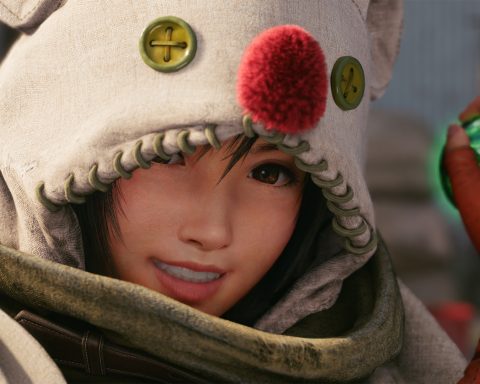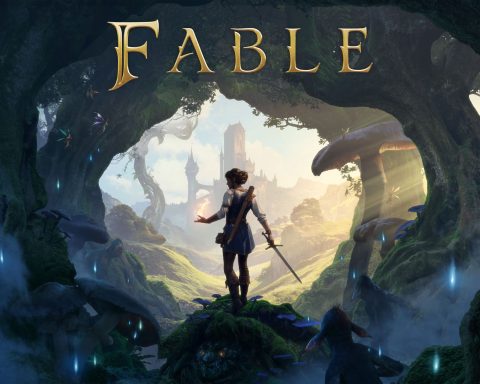 |
| Sorry America, you might miss out on getting your hands on this |
Two bits of news over the past day, and more specifically the reaction to that news has once again made clear to me a start divide between the gamer and the game maker. It’s become almost an us-and-them rather than a mutually beneficial relationship, and that’s a pity because it’s an unhealthy way for a market to exist.
One piece of news is that heavy use of DLC that Ubisoft appears to have planned. The other is the news that Nintendo of America appears to have no plans to localise the really great Project Zero 2 for the US market.
These stories have just the one thing in common: the community reaction. At the merest thought that there might be DLC involved with Ubisoft’s most important game release this year, the community spat the collective dummy, complete with the usual accusations that “Ubisoft is greedy” and promises of “I’m not buying this in protest.” The Nintendo community, meanwhile, has lambasted Nintendo for daring to “ignore” a release that is “clearly” going to sell a lot of copies.
In other words, the common element here is that the community is less-than-happy about business decisions that corporations have made. These are, of course, only the tip of the iceberg – type the characters “Kotick” into a forum or chat room and just watch the fireworks.
On one level there is nothing wrong with being disappointed that you’ll not get to play a game that you were really looking forward to, or that a game will cost more money to experience everything it has to offer than you might have anticipated.
I do think, however, that a significant number of gamers out there simply don’t understand that there is a fundamental conflict of interest here. This basic tension exists in most industries in our capitalist world, but applied in our not-so-little industry it’s a simple conflict of interest: a gamer wants good quality games cheap. A corporation wants to make sufficient profit to grow and then make further profit.
Problems occur from a lack of understanding – gamers don’t tend to understand just what is a healthy profit for a corporation to make in a depressed economic environment (hint: it’s much higher than what any of them are making right now), and corporations don’t really understand how to properly monetise an audience that has collectively decided that it doesn’t like paying premium prices for premium products.
But let’s make no mistake here – corporations do not exist for the sake of gamers. Yes, that sounds strange – after all, it’s the gamers that buy the products, right? But some basic capitalism theory here – the corporations are there to exploit the consumers – who are resources, not owners – to fund the growth that they need to be sustainable as businesses. In most cases (and this applies to the games industry as well) the only effective way to do that is to provide good quality goods and services, because the alternative is reputational damage from providing bad products that can cause that resource (the consumers) to become far less lucrative in the future. But that quality (and “care”) is not the interest of a game publisher, it’s a simple maths problem: good game = more money than bad game.
Sure, the artists behind the games are passionate about the projects, but those people are not the business decision makers, and without a publisher backing them up those $50 million projects that the artists like to make would never happen (or alternatively the company will explode like 38 Games did after a single poorly-monetised game release). So the artists need the businessmen to make those $50 million AAA games we all want. The business decisions makers have to act in the best interests of making a profit – they are more beholden to shareholders, boards, and their hundreds and thousands of employees than the consumer. To summarise? If gamers want those AAA-games they need to wear the occasional business decision that doesn’t go their way.
This doesn’t have to be a bad thing though. In a harmonious world, the consumer gives fair compensation for a game to the publisher, who is making enough money to take some risks and invest in R & D. In turn that provides the consumer with better and more creative games to play.
But the games industry is not harmonious. The games industry is filled with consumers who misunderstand what “fair compensation” means (or simply don’t care), and publishers are literally trying to mine a reserve that is rapidly drying up.
As a result, consumers are now seeing risk-adverse corporations making what is often aggressive to the point of desperate business decisions, and that in turn is upsetting the consumers, creating a perfect downward spiral.
The point of this little piece is simple: the best way to combat a problem is to understand the roots of it first. Gamers and industry alike need to understand the fundamental conflict of interest that exists within the games industry. And from there we can start to work out how both parties can be satisfied from the mutual exploitation of capitalism. And when both parties are satisfied, a mutually-virtuous cycle can replace the negative sentiments that are currently running through this industry.







Other than the inevitable few complaining about the big-corporation-wants-to-make-DLC issue, I'm not seeing too many people be bent out of shape on these two subjects. Yeah, I can see Nintendo fans getting upset over how Nintendo appears to not even trying to keep the Wii afloat in the US, but besides that I'm not feeling much hate from these two subjects.
As I mentioned, this is really just the tip of the iceberg. On any given day on the popular discussion forums and places like N4G I see a whole lot of people upset over the simple fact that corporations behave like corporations.
On my end, I like the fact that DLC will add content later in if you feel like buying it.
Personally, I don't get DLC too often, unless it's something that REALLY interests me game-wise.
I actually think the only one I have gotten to date is Rezurrection that was the zombie maps for Black Ops, the reason being that I liked zombie mode the most, otherwise I most likely would not have touched it.
And as for the games that they don't plan on selling to America as well, people may think that one of the games may sell a million copies or something, but most of the time games that are localized, depending on how big of a fanbase there is or previously was for it, don't actually sell very many copies outside of a certain group of gamers. Like the JRPG Agarest War, I personally love this game, whereas it's probably sold very little because either it just isn't talked about much or the person doesn't typically like that sort of game. So there. My opinion on this matter, if you don't care then don't read this, thank you.
And have a good day people.
I really don't have anything to add to this, since it looks like we see completely eye-to-eye, but I wanted to welcome you to the site, Chaltire – you're always welcome to drop in with your opinions! We're all about ideas here 🙂
Well aye-aye then, and thanks Matt!
I'll maybe slightly enjoy it here.
Maybe.
o3o
Be sure to sign up for the awards program too – we'll get you some nice games for your time 🙂
I should point out; "Making Money" does not equate to "Making A Good Game". An example: Psychonauts. Psychonauts was considered one of the best games of its generation, but it sold extremely poorly (if I'm correct, it barely got over the 20K mark).
Taking a long-term vision of the industry, though, the two are very closely related. Making money means more money to invest in experimental projects (ie the creative games that very few people buy).
Corporations don't simply bank the revenue from games and leave it gathering interest. They invest it in market creation, R & D and the like. The less profitable corporations stop taking risks (ie, stop investing in anything by the safe franchises).
So while you're right – with individual projects there is no correlation between making money and making a good game, there's a great deal of evidence that a financially successful corporation is a corporation that's able to finance good games.
I have no problem with dlc unless its part of the story that they pull out just to make you need it and make money off of it. As long as it just makes the game longer, or better than Im all for DLC